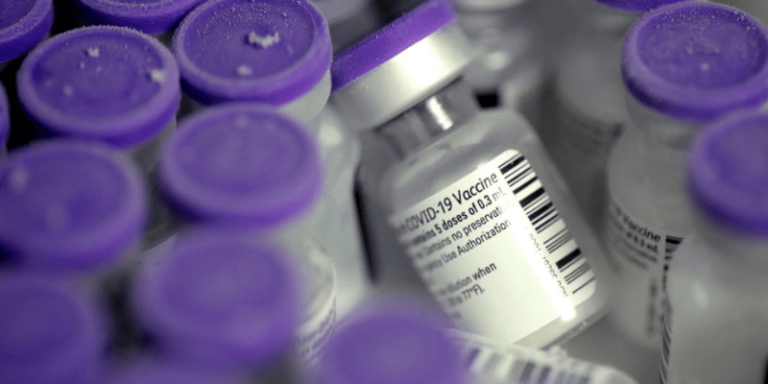COVID Vaccine Update
There are many COVID vaccines in the works; here’s an update on how they’re doing.
By: Andrew Moran | January 21, 2021 | 636 Words

(Photo by Scott Olson/Getty Images)
The coronavirus pandemic has killed nearly 100 million people, crashed the economy, and given us a “new normal” to get used to. But scientists have defied expectations and made multiple vaccines in less than a year. What are they, and who made them? Let’s explore the coronavirus vaccines on the market.
United States
Pfizer-BioNTech
Name: Comirnaty (BNT162b2)
Vaccine Type: mRNA-based vaccine
In November, Pfizer announced that it had created a coronavirus vaccine that is more than 90% effective in preventing catching COVID-19. The Pfizer inoculation has already been given to those on a high-priority list, including frontline workers and seniors. But there has been some controversy about some of the side effects, such as facial paralysis, and there are concerns over reports that a dozen people died in Norway after receiving the vaccine.
For now, countries are still moving ahead with the vaccine.
Moderna
Name: Moderna COVID‑19 Vaccine (mRNA-1273)
Vaccine Type: mRNA-based vaccine
Moderna confirmed that it has a COVID-19 vaccine with an efficacy rate of 94.5%. It is comparable to the Pfizer version, but it doesn’t have to be stored in super cold temperatures.
In December, several governments gave emergency approvals for the two-dose vaccine. The clinical trials revealed mild side effects, including fever, fatigue, and headaches.
Johnson & Johnson
Name: JNJ-78436735
Vaccine Type: Ad26.COV2.S
Health experts have called Johnson & Johnson’s single-dose vaccine “promising.” It has yet to get emergency authorization from the U.S. Food and Drug Administration (FDA), and Johnson & Johnson has had manufacturing delays. The inoculation has shown an efficacy rate of at least 80% and it does not need to be placed in freezers. Still, the company projects that it will make one billion doses by the end of 2021.
Europe
AstraZeneca (United Kingdom)
Name: COVID-19 Vaccine AstraZeneca (AZD1222)
Vaccine Type: Adenovirus vaccine
The British government is optimistic about the Oxford-AstraZeneca vaccine, giving it emergency approval in December and ordering 100 million doses of the vaccine that is 70% effective.
Although it has a lower effective rate, study participants did not become seriously ill and none were hospitalized during trial phases. It also has the advantage of only having to be stored in a normal refrigerator rather than in storage with extremely cold temperatures.
Gamaleya Research Institute, Acellena Contract Drug Research and Development (Russia)
Name: Sputnik V
Vaccine Type: Non-replicating viral vector
As of January 2021, Russia has exported its vaccine to a handful of countries, including Argentina, Bolivia, Palestine, Serbia, and Venezuela. Meanwhile, Moscow plans to roll out its mass vaccinations within Russia before the end of the month.
Asia
Sinovac (China)
Name: CoronaVac
Vaccine Type: Inactivated vaccine (formalin with alum adjuvant)
Unfortunately for China, its Sinovac coronavirus vaccine has been a failure, with late-stage trials showing an efficacy rate of 50.38% in Brazil and 65.3% in Indonesia.
Many details of the vaccine are still unknown because the information from the first and second phases, which involved 144 and 600 participants, respectively, wasn’t published.
Bharat Biotech, ICMR (India)
Name: Covaxin
Vaccine Type: Inactivated vaccine
Covaxin, developed between Indian biotechnology company Bharat Biotech and the Indian Council of Medical Research (ICMR), is a vaccine with an average efficacy rate of 60% to 70%. India’s government gave it emergency use authorization in early January.
Although the vaccine is still in the third phase of trials, the central government has launched the world’s largest COVID-19 vaccination campaign. This may have been out of desperation due to the explosion of cases in India and concerns over the new coronavirus variants.
A Race Against Time
With the discoveries of several new variants of the coronavirus, governments worldwide are in a race against time. Health experts are worried that the first-generation coronavirus vaccines may eventually reduce their power against new strains, making the pandemic worse. So far, however, scientists say that the latest mutations have yet to beat the leading COVID-19 vaccinations.
















